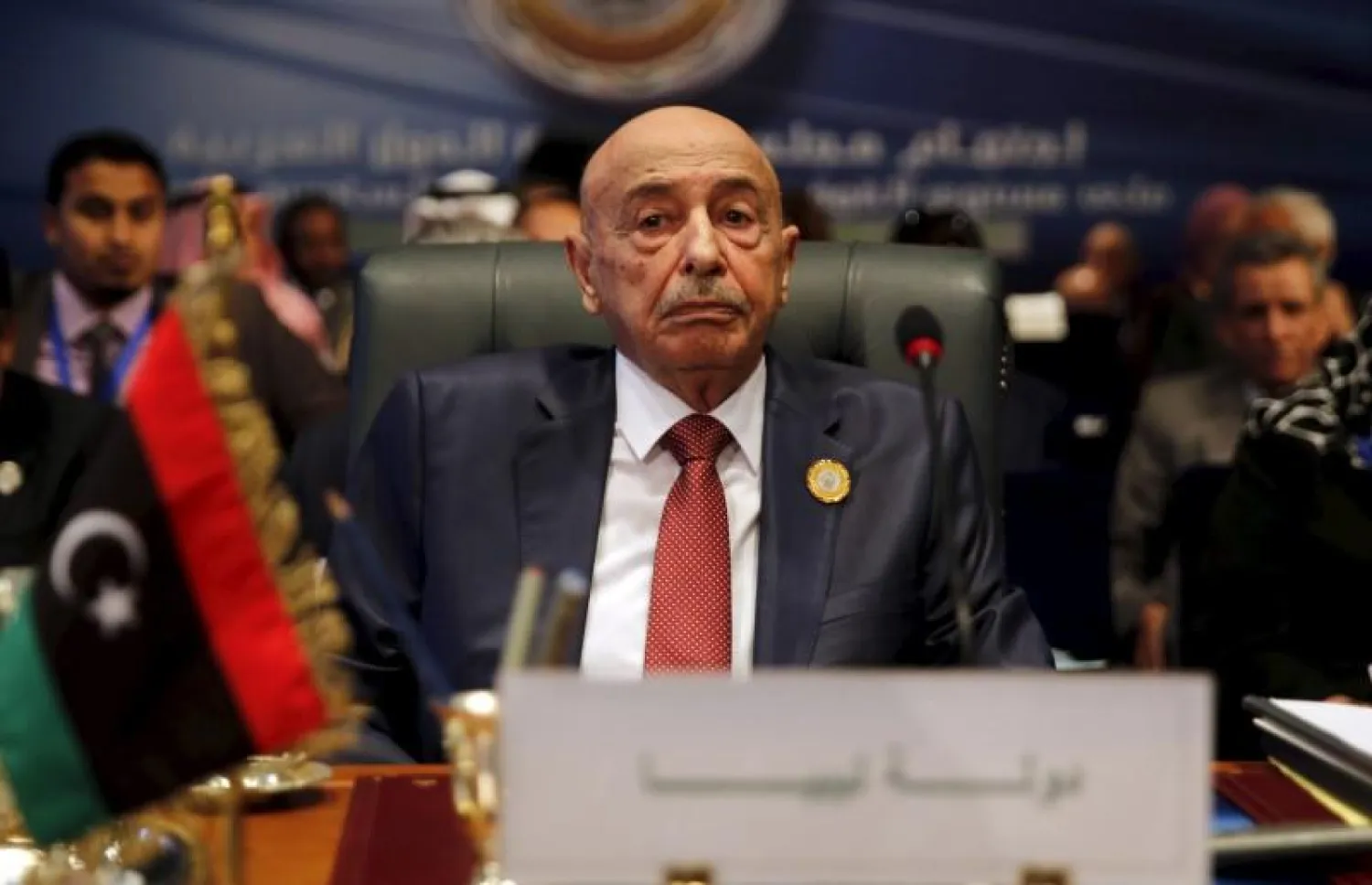The Libyan political circles welcomed reports about the EU's intention to remove the name of the President of the Libyan House of Representatives, Aguila Saleh, from the sanctions list, describing it as a “step in the right path.”
In early April 2016, the EU imposed sanctions on three Libyan figures, including the former President of National Nouri Abusahmain, and the head of the so-called “Salvation Government”, Khalifa al-Ghwell, and Saleh on charges of obstructing peace efforts.
Three diplomats told Reuters that the EU plans to remove Saleh from its sanctions blacklist to encourage peace efforts and ensure the Union plays a central role in any negotiated settlement.
The parliament reporter, Saleh Kalma, told Asharq Al-Awsat that the EU sanctions were improvised as an attempt to pressure Saleh, noting that they did not actually change or achieve anything.
Kalma indicated that for nearly four years, the sanctions were not discussed and Saleh as well as the parliament were not interested in that issue.
He added that the Speaker continued to visit European countries, and members and ambassadors of the Union visited him in eastern Libya.
Kalma noted that although an official decision has not been issued yet by the European Union in this regard, such reports at this time are an EU recognition of the parliament’s legitimacy, and the essential role Saleh plays in reaching a solution for the Libyan crisis through dialogue.
MP of Kufra city, Jibril Ouheida, told Asharq Al-Awsat this move is “a blessed step in the right direction,” adding that it corresponds to the recent visits and tours of Saleh to several countries, in search of a solution for the Libyan crisis.









